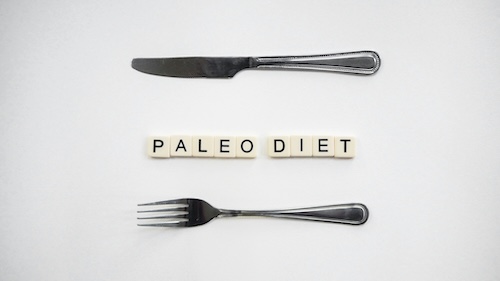Are you tired of searching for the perfect diet that will help you achieve your weight loss goals? Wondering which eating plan is truly worth trying? With so many popular diets out there, it can be challenging to determine which ones are effective and sustainable. But fear not, because in this article, we will delve into the most popular diets that have taken the wellness world by storm.
From trending diet plans to the best diet trends, we will examine the top dieting methods that have captured the attention of individuals looking to improve their well-being. Say goodbye to the confusion and frustration of finding the right diet, as we break down these celebrity-endorsed diet plans and reveal the truth behind the most searched diets.
Key Takeaways:
- Discover the most popular diets that are currently trending.
- Understand why these diets have gained significant recognition.
- Learn about weight loss programs and healthy eating plans.
- Explore the principles and potential benefits of each diet.
- Find the diet that aligns best with your goals and preferences.
Introduction to Popular Diets
In today’s health-conscious society, popular diets have gained immense traction as people strive to improve their well-being and achieve their wellness goals. These diets encompass a wide range of weight loss programs, healthy eating plans, and trending diet plans that have captured the attention of individuals seeking a healthier lifestyle.
So, why are people drawn towards these popular diets? The answer lies in the desire for effective and sustainable methods to lose weight, improve overall health, and establish healthier eating habits. These diets offer a structured approach that caters to various dietary preferences and goals, making them accessible to a wide range of individuals.
Popular diets have become the subject of fascination and intrigue, often endorsed by celebrities and promoted as the “best diet trends” or “top dieting methods.” With the advent of social media and the internet, these diets have become widely accessible and frequently searched, resulting in them being considered the “most searched diets” among individuals seeking reliable information and guidance.
While the effectiveness of these diets may vary from person to person, their popularity stems from the promise of results and the potential to transform one’s lifestyle. Whether it’s following a celebrity-endorsed diet plan or adopting a well-known healthy eating program, individuals are constantly searching for the right diet that aligns with their goals and preferences.
As we explore the most popular diets in the following sections, we will delve into their principles, potential benefits, and considerations to help you make an informed decision about which diet may be the right fit for you.
| Diet Name | Description | Celebrity Endorsement |
|---|---|---|
| Mediterranean Diet | A heart-healthy eating plan inspired by the traditional foods of countries bordering the Mediterranean Sea. | None |
| Ketogenic Diet | A low-carb, high-fat diet that aims to put the body into a metabolic state called ketosis. | Halle Berry |
| Vegan and Plant-Based Diets | Dietary choices that exclude animal products and promote a focus on plant-based foods. | Natalie Portman |
| Paleo Diet | A diet that emulates the eating habits of our ancestors during the Paleolithic era. | Pete Evans |
| Intermittent Fasting | An eating pattern that involves cycling between periods of fasting and eating. | Hugh Jackman |
| DASH Diet | A dietary approach to stop hypertension and improve heart health. | Michelle Obama |
| The Whole30 Diet | An elimination diet that focuses on whole foods and resets eating habits. | Busy Philipps |
| Weight Watchers Diet (WW) | A weight loss program that offers personalized plans and support for long-term success. | Oprah Winfrey |
The Mediterranean Diet
When it comes to popular diets, one that stands out for its health benefits and delicious flavors is the Mediterranean diet. This eating plan is inspired by the traditional cuisines of countries bordering the Mediterranean Sea, such as Italy, Greece, and Spain.
The Mediterranean diet focuses on whole foods, lean proteins, and healthy fats, making it a great choice for those looking to lose weight and improve their overall well-being. It’s known for promoting heart health and longevity, thanks to its emphasis on plant-based foods and low consumption of processed ingredients.
Key principles of the Mediterranean diet:
- Abundance of fruits and vegetables: Including colorful produce in every meal.
- Whole grains: Opting for whole grain bread, pasta, and rice over refined grains.
- Healthy fats: Incorporating olive oil, nuts, and seeds as primary fat sources.
- Lean proteins: Choosing fish, poultry, and legumes in place of red meat.
- Reduced dairy and red meat: Consuming these foods in moderation.
- Moderate alcohol consumption: Enjoying a glass of red wine in moderation.
The Mediterranean diet encourages a balanced and diverse approach to eating, providing a wide range of nutrients and promoting a healthy lifestyle.
The following table highlights some of the key components of the Mediterranean diet:
| Food Group | Examples |
|---|---|
| Fruits and vegetables | Tomatoes, spinach, oranges, strawberries |
| Whole grains | Quinoa, brown rice, whole wheat bread |
| Lean proteins | Fish, chicken, legumes |
| Healthy fats | Olive oil, avocados, nuts |
| Dairy | Yogurt, cheese (in moderation) |
| Red meat | Beef, lamb (limited consumption) |
| Herbs and spices | Basil, oregano, garlic |
| Moderate alcohol | Red wine (in moderation) |
By following the principles of the Mediterranean diet, individuals can enjoy a wide variety of flavorful and nutrient-dense foods while promoting a healthy weight and reducing the risk of chronic diseases.
The Ketogenic Diet

The ketogenic diet, also known as the keto diet, is a popular weight loss program and healthy eating plan that has gained immense recognition in recent years. It is characterized by a low-carb, high-fat approach that aims to induce a metabolic state called ketosis. This state involves utilizing fat as the primary source of energy instead of carbohydrates.
By drastically reducing carbohydrate intake and increasing fat consumption, the ketogenic diet encourages the body to shift its fuel source from glucose to ketones. Ketones are molecules produced by the liver when the body is in a state of ketosis. This metabolic shift has been associated with various benefits, including weight loss, improved energy levels, and enhanced mental clarity.
The ketogenic diet typically consists of foods such as meat, fish, eggs, nuts, seeds, oils, avocados, and low-carb vegetables. It restricts or limits the consumption of high-carb foods like grains, sugar, starchy vegetables, and most fruits.
While the diet has proven effective for many individuals, it is important to note that it may not be suitable for everyone. It is always recommended to consult with a healthcare professional before starting any new diet or weight loss program.
“The ketogenic diet has gained popularity due to its potential for weight loss and improved energy levels. It is a low-carb, high-fat eating plan that encourages the body to burn fat for fuel instead of carbohydrates.”
Vegan and Plant-Based Diets

In recent years, vegan and plant-based diets have gained significant popularity due to growing environmental awareness and ethical considerations. These diets have become popular choices for individuals looking for healthy eating plans that align with their values, while also contributing to sustainable living.
The Principles of Vegan and Plant-Based Diets
Veganism, and by extension, plant-based diets, prioritize the consumption of foods derived from plants while avoiding any animal products. This includes meats, dairy, eggs, and even honey. The primary focus is on consuming fruits, vegetables, legumes, whole grains, nuts, and seeds.
- Exclude: Animal products such as meat, dairy, eggs, and honey.
- Include: Fruits, vegetables, legumes, whole grains, nuts, and seeds.
Vegan and plant-based diets promote cruelty-free living by avoiding any form of animal exploitation. These diets also contribute to reducing the environmental impact of food production, as plant-based foods generally require fewer resources compared to animal-based foods.
| Vegan and Plant-Based Diet Health Benefits | Evidence |
|---|---|
| Weight management | Studies have shown that vegan and plant-based diets can be effective in weight loss and weight management, as they tend to be lower in calories and richer in fiber. |
| Heart health | Research suggests that plant-based diets can help lower the risk of heart disease by reducing cholesterol levels and blood pressure. |
| Reduced risk of chronic diseases | Several studies have indicated that vegan and plant-based diets may lower the risk of developing chronic diseases, including certain types of cancer and type 2 diabetes. |
| Nutritional adequacy | Vegan and plant-based diets, when properly planned, can meet all nutritional requirements, including protein, iron, calcium, and vitamin B12. Supplementation may be necessary for vitamin B12. |
It’s important to note that while vegan and plant-based diets offer numerous health benefits, it’s essential to ensure adequate nutrient intake, especially for nutrients commonly found in animal-based products, such as vitamin B12.
“Vegan and plant-based diets provide a wealth of health benefits, supporting weight loss, improving heart health, and lowering the risk of chronic diseases—all while promoting cruelty-free living and sustainable food choices.” – Dr. Amanda Thompson, Registered Dietitian
The Paleo Diet

The paleo diet, also known as the ancestral, primal, or caveman diet, is based on the concept of consuming foods that were available to our ancestors during the Paleolithic era. This diet emphasizes a return to a more natural way of eating, focusing on whole, unprocessed foods that were hunted, gathered, or foraged.
The core principles of the paleo diet revolve around eliminating processed foods, refined sugars, grains, legumes, and dairy products, and instead emphasizing the consumption of lean proteins, fruits, vegetables, nuts, and seeds. The idea behind this diet is that by following the eating habits of our early ancestors, we can optimize our health and well-being.
Paleo Diet Principles
The paleo diet promotes the following principles:
- Whole, unprocessed foods: The paleo diet encourages the consumption of foods in their most natural form to maximize nutrient intake.
- Lean protein: This diet emphasizes the consumption of lean sources of protein such as grass-fed meat, poultry, and fish.
- Vegetables and fruits: Paleo followers are encouraged to consume a variety of non-starchy vegetables and low-sugar fruits.
- Healthy fats: It emphasizes the inclusion of healthy fats from sources like avocados, nuts, and olive oil.
- Nuts and seeds: These are considered nutritious snacks and sources of healthy fats and proteins.
By adhering to these principles, proponents of the paleo diet believe that it can lead to weight loss, improved digestion, increased energy levels, and better overall health.
Potential Benefits and Controversies
The paleo diet has gained popularity due to its potential benefits. Research suggests that it may help with weight loss, blood sugar control, and lower risk factors for heart disease. Moreover, since it promotes the consumption of whole, unprocessed foods, it can help individuals adopt a healthier eating pattern.
However, the paleo diet is not without controversies. Critics argue that the elimination of grain and dairy products may lead to nutritional deficiencies, and it may be challenging to sustain in the long term due to the limited food options. It’s important to emphasize that individual needs may vary, and consulting a healthcare professional before starting any diet is advisable.
“The paleo diet focuses on returning to a more natural way of eating, emphasizing whole, unprocessed foods and eliminating processed products. While it has garnered popularity, it’s essential to consider the potential benefits and controversies associated with this dietary approach.”
Intermittent Fasting

Intermittent fasting has become a popular diet strategy and weight loss program that has gained attention for its potential health benefits. This eating pattern revolves around alternating periods of fasting and eating, with various methods to suit individual preferences and goals.
One of the most common approaches to intermittent fasting is time-restricted eating, where individuals limit their daily eating window to a specific duration, typically 8 to 10 hours. This method allows for fasting periods of 14 to 16 hours, during which the body can burn stored fat for energy and potentially promote weight loss.
Intermittent fasting can offer numerous benefits beyond just weight loss. It has been found to improve insulin sensitivity, metabolic health, and even support cellular repair processes.
Another popular intermittent fasting method is alternate-day fasting, which involves alternating between fasting days and normal eating days. On fasting days, individuals consume little to no calories, while on regular eating days, they can eat normally within their dietary preferences and guidelines.
While intermittent fasting may not be suitable for everyone, individuals who engage in this eating pattern often report an increased sense of control over their eating habits and improved mental clarity. It’s important to note that consulting a healthcare professional is recommended before starting any new diet or fasting method.
Types of Intermittent Fasting:
- 16/8 Method: This method involves fasting for 16 hours each day and consuming all meals within an 8-hour window.
- 5:2 Diet: With this approach, individuals consume a normal diet for five days of the week and restrict calorie intake to 500-600 calories on the remaining two days.
- 24-Hour Fast: In this method, individuals choose to fast for a full 24 hours once or twice a week.
Intermittent fasting can be a flexible and effective way to promote weight loss, improve overall health, and foster a mindful approach to eating. It’s vital to listen to your body’s needs and ensure that any fasting method aligns with your specific health goals and lifestyle.
| Type of Intermittent Fasting | Description |
|---|---|
| 16/8 Method | Fasting for 16 hours and eating within an 8-hour window each day |
| 5:2 Diet | Eating a normal diet for five days and restricting calorie intake to 500-600 calories on two days |
| 24-Hour Fast | Fasting for a full 24 hours once or twice a week |
The DASH Diet
When it comes to popular diets and healthy eating plans, the DASH diet (Dietary Approaches to Stop Hypertension) is recognized for its focus on lowering blood pressure and promoting heart health. This well-balanced approach to eating emphasizes the consumption of nutrient-rich foods while limiting sodium intake. Let’s take a closer look at the principles of the DASH diet and its potential impact on overall wellness.
The Principles of the DASH Diet
The DASH diet encourages a wholesome and diverse range of foods, including fruits, vegetables, whole grains, lean proteins, and low-fat dairy products. It also promotes the consumption of healthy fats, such as those found in nuts, seeds, and olive oil. By incorporating these food groups, the DASH diet aims to provide essential nutrients while reducing the risk of high blood pressure and heart disease.
One of the key aspects of the DASH diet is its emphasis on reducing sodium intake. By limiting sodium consumption to around 2,300 milligrams per day (or even lower for certain individuals), this diet can help lower blood pressure and improve overall cardiovascular health.
The Potential Impact on Overall Wellness
The DASH diet’s focus on heart-healthy eating and lower blood pressure can have several benefits for overall wellness. By following the DASH guidelines, individuals may experience improved cardiovascular health, reduced risk of chronic diseases, and enhanced weight management. Additionally, the DASH diet promotes a balanced approach to eating, providing a wide range of nutrients to support overall well-being.
Sample DASH Diet Meal Plan
To give you a better understanding of how the DASH diet can be incorporated into your daily meals, here’s a sample meal plan:
| Meal | Food |
|---|---|
| Breakfast | Vegetable omelet with whole wheat toast |
| Lunch | Grilled chicken salad with mixed greens, tomatoes, and avocado |
| Snack | Carrot sticks with hummus |
| Dinner | Baked salmon with roasted vegetables and quinoa |
| Snack | Greek yogurt with berries |
Remember, the DASH diet can be customized to suit individual preferences and dietary needs. It’s always advisable to consult with a healthcare professional or a registered dietitian before making any significant changes to your eating plan.
By incorporating the principles of the DASH diet into your lifestyle, you can embark on a journey towards better heart health and lower blood pressure.
The Whole30 Diet
The Whole30 diet is a popular elimination diet that involves temporarily removing certain food groups from your diet for 30 days. This program aims to help reset your eating habits, identify potential food sensitivities, and promote overall wellness.
During the Whole30 diet, participants are advised to eliminate grains, dairy, legumes, added sugars, and processed foods from their meals. The focus is on consuming whole, unprocessed foods that are nutrient-dense and support optimal health.
Clean eating is at the core of the Whole30 diet, emphasizing the importance of consuming minimally processed and whole foods. By eliminating potentially inflammatory foods for 30 days, this diet aims to reduce cravings, improve energy levels, and promote weight loss.
The Whole30 diet can be seen as a reset for your eating habits, helping you develop a healthier relationship with food. By removing certain foods from your diet, you can gain a better understanding of how these foods may affect your overall well-being.
Although the Whole30 diet is not intended to be a long-term eating plan, many people report positive effects such as improved digestion, increased energy, and better sleep quality. However, it’s important to note that this diet may not be suitable for everyone, especially those with underlying health conditions.
The Whole30 diet is a short-term commitment but can have long-lasting benefits. By eliminating certain food groups, you can reset your eating habits, identify food sensitivities, and make more informed choices about your diet.
Potential Benefits of the Whole30 Diet
- Improved digestion and gut health
- Increased energy levels
- Reduced inflammation
- Weight loss
- Enhanced mental clarity
Overall, the Whole30 diet offers a structured approach to clean eating and can serve as a helpful tool for individuals looking to reset their eating habits and identify potential food sensitivities. However, it’s important to consult with a healthcare professional or registered dietitian before starting any new diet or elimination program to ensure it aligns with your specific needs and goals.
The Weight Watchers Diet
The Weight Watchers diet, now known as WW, is a popular weight loss program that focuses on personalized plans and support. It has been helping individuals achieve their weight loss goals for several decades.
With Weight Watchers, the emphasis is on creating a wellness journey that suits each individual’s needs and preferences. The program offers a holistic approach to weight loss by combining healthy eating plans, physical activity, and support from a community of like-minded individuals.
At the core of the Weight Watchers program is the concept of personalized weight loss. Each member is assigned a SmartPoints target, which guides them in making food choices based on the nutritional value of the food and its impact on weight loss.
Weight Watchers allows flexibility in food choices, so members can enjoy their favorite foods while still progressing towards their weight loss goals. The program encourages the consumption of wholesome, nutrient-dense foods while promoting portion control.
One of the unique features of WW is its focus on behavior change. It aims to help individuals develop a healthy relationship with food, addressing emotional eating and fostering mindful eating habits. The program provides resources, coaching, and a supportive community to help members overcome challenges and stay motivated on their wellness journey.
“Weight Watchers has been an incredible resource on my weight loss journey. The program helped me develop healthier habits and provided the support I needed to stay on track.” – Sarah, WW member
Weight Watchers also offers an extensive database of recipes, meal planning tools, and a mobile app that allows members to track their progress and access resources on the go.
The Benefits of the Weight Watchers Diet
- Personalized weight loss plans tailored to individual needs
- Flexible food choices and portion control
- Behavior change support and resources
- Access to a supportive community
- A focus on developing healthy eating habits
By following the Weight Watchers diet, individuals can embark on a personalized weight loss journey that prioritizes healthy eating, portion control, and behavior change. With the support and resources provided by the program, members can achieve their weight loss goals and maintain a healthier lifestyle in the long term.
| Nutritional Value | Flexibility | Behavior Change Support | Community |
|---|---|---|---|
| Provides guidance on making nutritious food choices | Allows flexibility in food choices | Supports the development of healthy eating habits | Access to a supportive community for motivation and accountability |
| Favors portion control for balanced meals | Offers a mobile app for tracking progress | Provides resources and coaching for behavior change | Opportunity to connect with like-minded individuals on a similar journey |
Conclusion
In conclusion, exploring popular diets such as weight loss programs and healthy eating plans can provide valuable insights into different approaches to achieving overall wellness. These diets, which include options like the Mediterranean diet, the ketogenic diet, vegan and plant-based diets, the paleo diet, intermittent fasting, the DASH diet, the Whole30 diet, and the Weight Watchers diet, offer individuals unique principles and potential benefits to help them reach their health and weight goals.
It’s important to remember that there is no one-size-fits-all approach when it comes to choosing the right diet. Each person’s body and lifestyle are different, so finding a diet that aligns best with their goals and preferences is crucial. However, regardless of the diet chosen, maintaining sustainable and balanced eating habits is the key to long-term success.
Whether you’re looking to shed a few pounds, improve your overall well-being, or simply adopt a healthier lifestyle, these popular diets can serve as a starting point for your journey. As always, consult with a healthcare professional or a registered dietitian before embarking on any new dietary plan to ensure it’s safe and appropriate for your individual needs.




